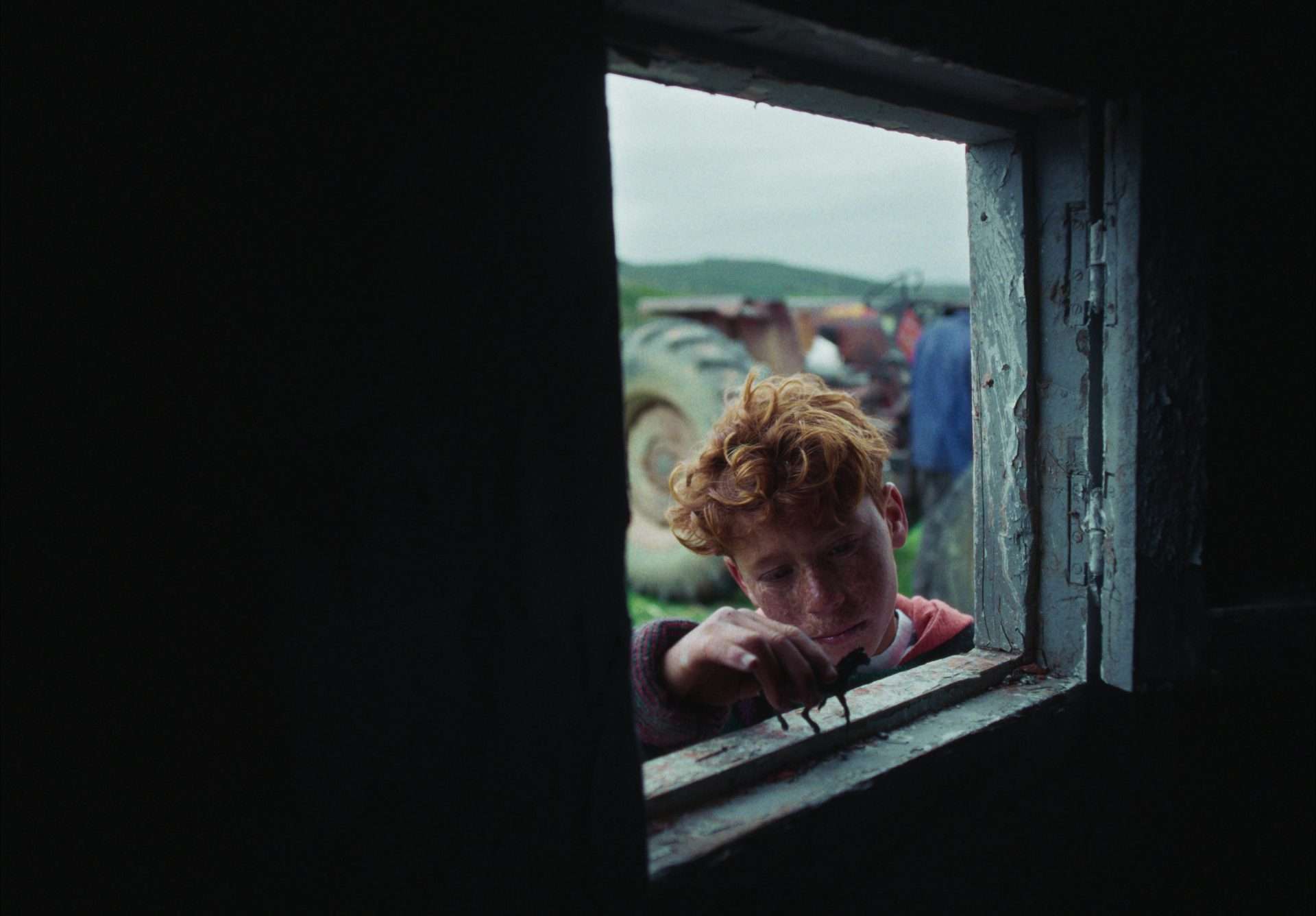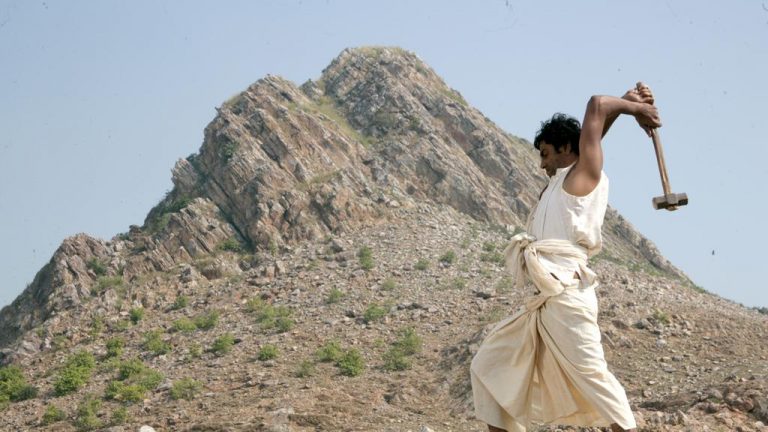Who Do I Belong To (2024) ‘Berlinale’ Movie Review: Human beings are, by nature, social animals that require a certain degree of interconnectivity in order to function. In a sense, all animals require social skills to the extent needed to procreate, but humans are among those precious few who, in that biological imperative, have developed a more existential longing to go along with that need for connectivity.
Why are we here? What purpose do we have in being together any longer than necessary? As such, the very concept of “belonging” takes on a dynamic meaning, encompassing as wide a range as nationalities, right down to spaces as intimate as the confines of one’s family home. In short, when one asks, “Who Do I Belong To?” the response will invariably shift depending on who’s asking.
In Meryam Joobeur’s debut film, this is a question whose malleability infects the minds of everyone at its center. Aïcha (Salha Nasraoui) and Brahim (Mohamed Hassine Grayaa) are a rural couple living in a small village in Northern Tunisia, distraught at the fact that the eldest two of their three sons have gone off to fight for ISIS. The effects of this sudden move towards embracing radicalism shocks the couple just as much as it leaves them continuously on the verge of grief from the prospect of not knowing the fates of their long-gone sons.
Even if their sons are alive, any rejoicing would be short-lived; their choice to fight for ISIS just means they’ll be arrested as soon as they return. And to complicate matters further, the eldest son (Malek Mechergui) does return, though not with his sibling—who we learn was mysteriously killed fighting for his cause—but rather with an enigmatic wife, Reem (Dea Liane). She never speaks nor removes her niqab, leaving all interpretation of who or what she is down to the icy gaze of her frigid green eyes.
The obvious parallel to make when discussing “Who Do I Belong To” would be to compare it to Kaouther Ben Hania’s recent documentary “Four Daughters,” chronicling the coping process of a family whose two oldest daughters followed the same path. However, where “Four Daughters” was about the unintended effects of constricting parenthood leading towards radicalization, Joobeur’s film finds as its crux the coping that comes from the radicalized themselves who made it out to the other end. Or at least, that’s one vantage point that “Who Do I Belong To” opts to tackle, for the director finds in her rich tapestry of thematic material far too many threads needing to be woven together.

There are quite a few angles one could tackle in discussing the (de)radicalization of youth and associated guilt in a rural and religious setting. You can approach it from the vantage point of the footsoldiers themselves, reckoning with the unforgivable implications of their actions. Or you can focus on the feelings of inadequacy of a father who failed to protect and shepherd his sons into his proper estimation of manhood and morality.
Or you can focus on the horrors felt by a mother whose entire adult life has been spent nurturing a living piece of her soul—a piece she believed would one day repay that nurturing by protecting her in the throes of old age—only to find him completely changed and beyond the scope of perceptible forgiveness in the eyes of the law, the lord or her own family. “Who Do I Belong To,” to an extent, decides to approach all of these viewpoints among others, and while there is certainly a world in which all of these contexts mesh together cohesively, Joobeur, as a first-time feature director, finds difficulty in juggling them all smoothly.
One thing you’ll notice within minutes of “Who Do I Belong To” is the decision to shoot the film almost entirely in shallow focus close-ups—even in the occasional medium shot, the background glazes by like an intangible forcefield keeping the details just out of perspective, for both viewer and the character alike. Among these blurred backgrounds is cinematographer Vincent Gonneville flooding your optics with a consistently muddled hue of white light and muted blues that fully sell a locale that feels as if it’s had all semblance of life stripped away.
It’s a fascinating choice that echoes the daring immediacy of recent masterpieces like “Son of Saul” or “An Elephant Sitting Still,” but this move towards subjectivity never quite achieves that sense of texture because these formal choices seem to exist to fill in thematic blank spaces rather than envelop us into a focused point of view (namely, that of the son himself).
There is, of course, a somewhat supernatural element at play in “Who Do I Belong To” that adds another dimension to the proceedings—one that provides an intriguing, if not entirely unique, spin on the narrative. The manifestation of guilt and trauma coming in the form of a communal “plague” of sorts gives Joobeur yet another ball to juggle somewhat haphazardly, but if nothing else, the final payoff does leave room for a moment of interpretation that points to the filmmaker’s admirable sense of ambition with such a small scale.
Meryam Joobeur not only asks who we each feel we belong to but, in doing so, also posits the question of whether or not we get to choose the answer for ourselves, subsequently mining the repercussions that come with taking such initiative in the first place. In the case of “Who Do I Belong To,” these queries exist in a state of constant obscurity that matches the film’s woozy aesthetic, and like some of the best art, the film is confident in the assertion that the question can sometimes be an answer in and of itself; all that’s left is to convince us that such confidence is warranted through the honed sense of focus stemming from a refined vision.


![Riceboy Sleeps [2022]: ‘TIFF’ Review – A Deeply Personal Take on a Family Running Deep](https://79468c92.delivery.rocketcdn.me/wp-content/uploads/2022/09/Riceboy-Sleep-2022-Movie-Review-768x384.jpg)

![Joint [2021] NYAFF Review: A Generic Albeit Fresh Spin on the Yakuza narrative](https://79468c92.delivery.rocketcdn.me/wp-content/uploads/2021/08/joint_main-1.png)

![Song Lang [2019]: ‘NYAFF’ Review – An Ode to the Buried Emotions and Unspoken Tales](https://79468c92.delivery.rocketcdn.me/wp-content/uploads/2019/07/Song-Lang-high-on-films1-768x432.jpg)
